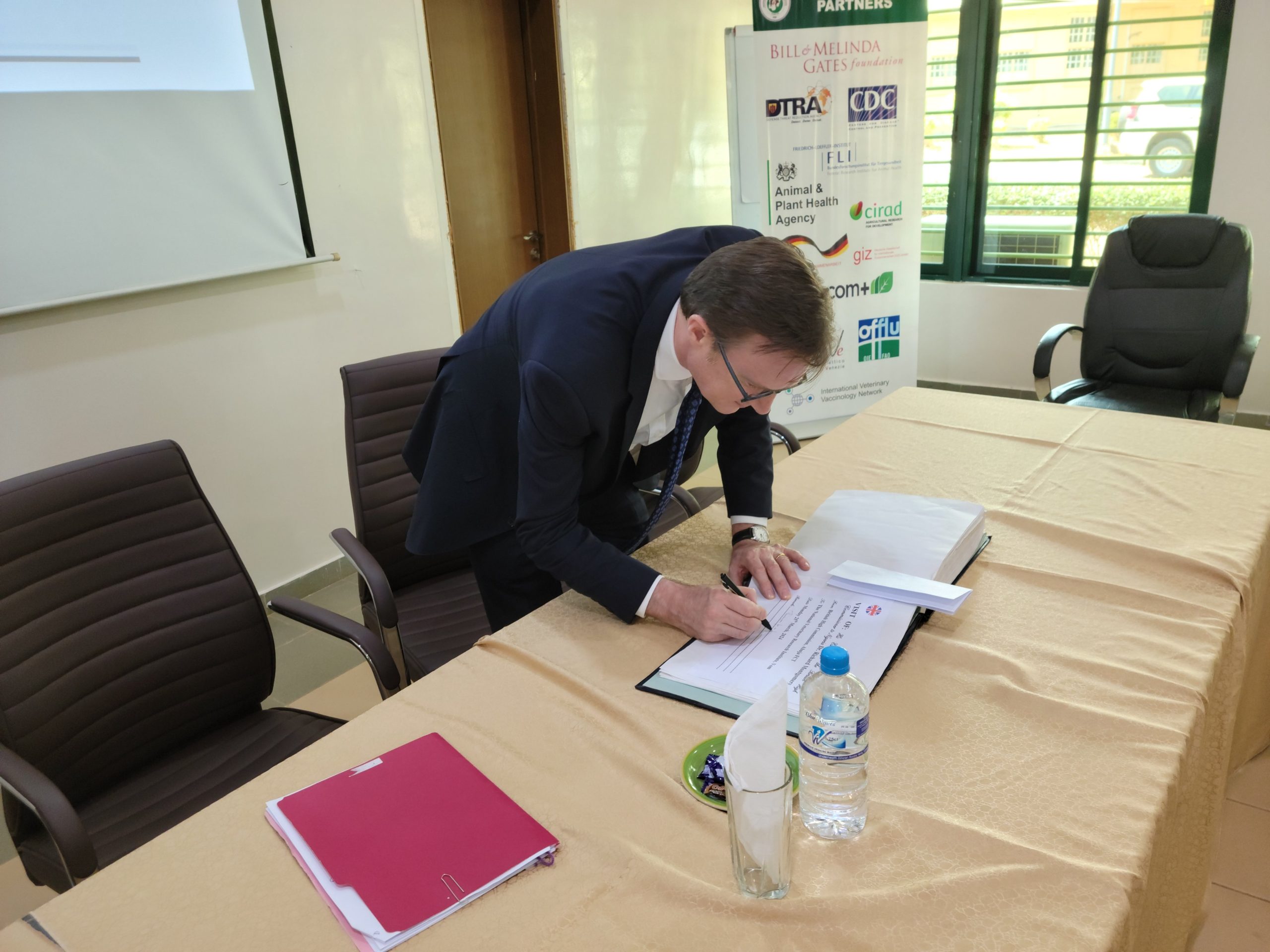Education
PhD students from Nigeria can still bring dependents to UK, says British High Commissioner

Dr. Richard Montgomery, the British High Commissioner to Nigeria, stated that although some international students are prohibited from bringing dependents, those enrolled in PhD programs are still allowed to bring dependents into the country.
Montgomery shared this information during an interview with the News Agency of Nigeria (NAN) on Sunday in Abuja.
He mentioned that the policy change, which was implemented earlier this year, prohibits international students in higher education from bringing dependents to the UK.
According to him, this decision was made to address the growing issue of many foreign students bringing dependents.
He noted that the unsustainable pressure on numerous universities due to the influx of dependents led to the introduction of these policy changes.
He pointed out that university Chancellors had raised concerns about the large student populations, specifically noting challenges such as limited accommodation, access to medical services through the National Health Service, and schooling for dependents.
Montgomery explained that the restrictions are not universal, highlighting that those pursuing long-term research degrees, such as PhDs or doctorates, are exempt from these limitations.
“Those coming to the UK for doctorate can still bring their dependency but if you are coming to the UK with a study visa for an undergraduate degree, or short term master’s degree am afraid the rules have been changed.
“People need to understand why this change was brought in, and it is a sensible change because we have a large higher education sector and most of these universities are in towns across the country.
“I really like the demand but there are other factors at play in terms of schooling in the UK , the value of the Naira in the coming months will also determine how easy or hard it will be for many people to afford our education.
“But I really hope that the number of people who bring dependents in UK may actually not be a majority, but a minority of people have tried to study in the UK so am hoping that the demand will be sustained,” he said.
Education
Final year student in Ebonyi commits suicide after failing course

A final year student in Ebonyi state university (EBSU), identified as Favour Ugwuaka, has reportedly ended her life.
In the news making rounds online, Favour was found dead behind her hostel at Ishieke campus in Abakaliki on Wednesday May, 22 after a poisonous substance suspected to be sniper.
According to Punch, the student from the Department of English passed all her courses but repeatedly failed a particular course, whose lecturer had allegedly vowed she would never pass.
In an emotional video airing online, it showed moment Favour’s grieving mom stormed EBSU campus with her corpse. Shouting and wailing in pain, she blamed the lecturer named Dr. Enyi for her tragic passing.
She could be heard calling out the lecturer’s name, revealing that he has successfully made her child commit suicide.
In her words, Dr. Enyi Chukwuka said he is the best, that nobody can teach like him, he graduated from UNILAG. He should come and carry my daughter who has committed suicide and bury her.
A voice note documenting the deceased lamentations few hours before killing herself showed that she paid N130k for the carry over course but still failed. She could be heard saying, ‘I go soon leave this school for una’, is it because I am not an indigene of Abakaliki”.
An EBSU graduate, Rex Nwome, claimed that the girl committed suicide because she had been failing the particular course repeatedly.
He said, “Favour was my classmate and a best friend to me in the English Department. The lecturer mentioned a did vow never to allow Favour to graduate”.
“You could imagine where she later passed all the courses except that lecturer’s that she had to pay another extra year tuition fee to rewrite”.
“Unfortunately the man failed her again. What resulted in this intense depression as the latest NYSC names that were recently shortlisted, and her name wasn’t there.”
“The girl suffered a lot of depression because she was only left wandering about the EBSU seeking help. She was very desperate to graduate and serve. This and many more of the disgusting stories resulted in this suicide mission”
“I wish she didn’t go this far to end her life. R. I. P Ugwuka Favour till we meet to part no more.”.
Watch the emotional moment below:
Education
How to apply for student loan as portal opens today, by NELFUND

The Federal Government recently announced that the portal for student loan applications will officially open on Friday (today), May 24, 2024.
Nasir Ayitogo, Media and Public Relations Lead for the Nigerian Education Loan Fund (NELFUND), disclosed this information in a statement released last Thursday in Abuja.
Following this announcement, NELFUND has released straightforward guidelines on how students can apply for the loan, as the application portal opens today.
The student loan provides credit facilities for tuition fees and upkeep at recognized higher education and vocational training institutions within Nigeria.
Below are step-by-step ways to apply for a student loan according to NELFUND:
Step 1: visit nelf.gov.ng
Step 2: Click on the “Apply Now”
Step 3: Click on “Get Started”
Step 4: Answer the questions on this page to continue by clicking on “Yes, I am a Nigerian”
Step 5: Verify your educational information. You would be required to select your school from a dropdown and provide your matric number to check if your school has uploaded your details.
Step 6: Click the “Verify with JAMB” and enter your JAMB details in the screen.
(Students whose NIN has not been registered with JAMB will have an input field where they can enter their NIN for validation.)
Step 7: Create an account by entering your email address and password. You will need to confirm the password in the fields provided and click “Create Account.”
Step 8: Click the email verification link sent to your email. This concludes the process of creating an account.
HOW TO COMPLETE YOUR PROFILE
After successful registration, log in by clicking the “LOGIN” button.
Step 1: Enter your email address and password to Login.
Step 2: Click on the “Proceed to Contact Details” button.
Step 3: Update contact details with the current information of your phone number, full residential address, state of residence and local government area of residence. Then click “Proceed to Educational Details.”
Step 4: Update your educational details by selecting your higher Institution, and inputting your matric number. Then click “Proceed to Account Details.”
Step 5: Verify your BVN by entering your BVN, select your bank name and enter your account number. Click “save changes” to complete your profile.
LOAN APPLICATION
Step 1: Click on the “Request for student loan” button at the top right of the screen on the home or loans page after logging into the application.
Step 2: If you want an upkeep loan, click the check box, and click *continue,” if all you need is the institutional charge, click the “Continue” button.
Step 3: Upload supporting documents. The admission letter is compulsory but the student ID and institution invoice are optional.
Click the checkbox for the policy and declaration and click “continue.”
Step 4: Read the loan overview and click the checkboxes for both the terms & conditions and GSI Mandate then click “Submit Application”
Step 5: Click on the “loans” button to view the status of your application.
Education
UK to introduce mandatory English tests for migrant graduates to tighten immigration controls

The UK government is set to revise the Graduate Route scheme by introducing mandatory annual English tests for migrant graduates, aiming to ensure that only highly proficient English speakers remain in the country.
This is part of broader efforts to tighten immigration controls and maintain high educational standards.
Under the new policy, the Graduate Visa Route, which allows international students to work in the UK for two years post-graduation, will now include stricter requirements to assess English language proficiency annually.
Other immigration control measures
Also, universities and colleges with high dropout rates among international students will face penalties and could lose their license to recruit these students, ensuring accountability and commitment to quality education.
Again, the Home Office is cracking down on recruitment agents who mislead foreign students into low-paying jobs, often exploiting them under the Graduate Route scheme.
To further refine the quality of education offered, Prime Minister Rishi Sunak is considering banning “low quality” postgraduate courses that serve more as gateways to work visas than genuine academic pursuits.
Despite these measures, immigration figures remain high, raising concerns about the effectiveness of current policies.
Recent data shows that a significant portion of graduates under the visa scheme earn below £15,000 annually, questioning the system’s benefit to both the graduates and the UK economy.
The planned reforms highlight the government’s determination to refine its immigration policy and enhance the educational landscape signaling significant adjustments for universities, students, and recruitment agents in adapting to these changes.
The forthcoming reforms highlight the UK government’s dedication to enhancing its immigration policies and upholding rigorous educational standards.
As these modifications take effect, universities, students, and recruitment agents must adjust to the evolving environment, ensuring they comply with regulations and maintain the integrity of the UK’s educational and immigration frameworks.
-

 Business5 days ago
Business5 days agoUnilever Nigeria Plc appoints Bolaji Balogun as independent non-executive director and chairman of the board
-

 Entertainment1 week ago
Entertainment1 week agoE-money calls for the arrest of two Facebook influencers who alleged that he slept with Junior Pope’s wife
-

 Entertainment1 week ago
Entertainment1 week agoAfrican Television and Foundation for Justice vows to pay N50 million to anyone with credible information on Mohbad’s death
-

 World1 week ago
World1 week agoHarry and Meghan: Outrage on social media as UK journalist says Nigerians are Nazis
-

 Health1 week ago
Health1 week agoScientists discover blood proteins that could warn of cancer years before diagnosis
-

 Crime1 week ago
Crime1 week agoCourt sentences Lagos cosmetics surgeon, Adepoju Anuoluwapo to one year in prison
-

 Sports1 week ago
Sports1 week agoEdem Offiong, Olajide Omotayo qualify for Paris Olympics
-

 Education6 days ago
Education6 days agoNIN, BVN, admission letter… how to apply for student loan


















